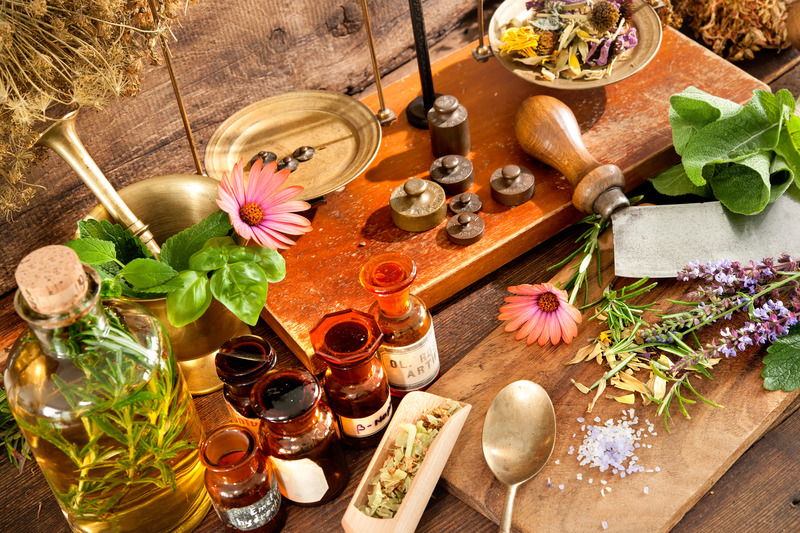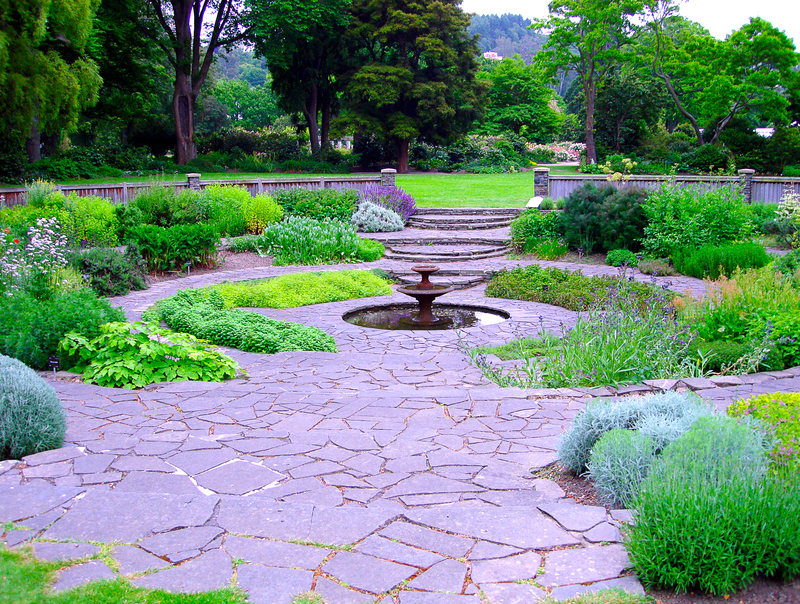Cultivate Success with These 9 Essential Gardening Tips
Posted on 30/08/2025
Cultivate Success with These 9 Essential Gardening Tips
Looking to transform your outdoor space into a flourishing sanctuary? Whether you're an ambitious beginner or a seasoned green thumb, mastering fundamental gardening skills paves the way for long-lasting beauty and bountiful harvests. In this comprehensive guide, we'll unveil the top nine gardening tips that will help you cultivate success, nurture vibrant plants, and enjoy a healthier, happier garden.
1. Know Your Local Climate and Soil
The foundation of successful gardening begins with understanding your environment. Your local climate and soil quality directly affect plant growth, resilience, and yield. Start by gathering information about your area's hardiness zone, average rainfall, temperature ranges, and sunlight exposure.
How to Assess Your Garden's Conditions
- Check your USDA hardiness zone to choose plants suited to your region.
- Test your soil's pH and nutrient content at least once per year.
- Observe patterns of sunlight and shade in your garden.
- Amend the soil with compost or organic matter if it's lacking nutrients.
Optimizing plant selection and soil preparation lays the groundwork for robust growth and enduring success.

2. Create a Thoughtful Garden Design
A well-planned garden layout ensures every plant gets the right amount of light, space, and water. Not only does design improve visual appeal, but it also simplifies maintenance and maximizes crop or flower production.
- Consider companion planting to boost yield and deter pests.
- Group plants with similar water and sunlight requirements.
- Plan pathways for easy access and efficient harvesting.
- Incorporate vertical gardening for small spaces.
Remember: Good garden structure creates harmony and supports plant health.
3. Choose the Right Plants for Your Space
The best gardening tip for beginners is to select plants that thrive in your local conditions. Consider your climate, soil, and garden size before making your choices.
Factors to Consider When Selecting Plants
- Climate tolerance: Pick plants compatible with local weather patterns.
- Soil requirements: Some plants need rich, loamy soil, while others tolerate sand or clay.
- Mature size: Give each plant enough space to grow to full size.
- Sunlight needs: Only plant shade-lovers beneath trees or in north-facing beds.
Researching and matching plant needs reduces frustration and sets you up for gardening success.
4. Water Wisely and Consistently
Proper watering is a pillar of healthy gardening. Both overwatering and underwatering can stress plants, promote disease, or stunt growth. Consistent, deep watering encourages roots to grow down rather than remain shallow.
- Water early in the morning or late in the afternoon to minimize evaporation.
- Use mulch to retain soil moisture.
- Check the top 2 inches of soil - if dry, it's time to water.
- Drip irrigation systems conserve water and deliver it directly to the roots.
Tip: Most plants prefer a slow, deep soak over light, frequent watering.
5. Feed Your Plants Organic Matter
Plants, like people, perform best with balanced nutrition. Enrich your soil with organic matter - such as compost, worm castings, or aged manure - to provide essential nutrients, boost microbial life, and improve texture.
Feeding Your Garden Organically
- Add compost to your beds each season to rejuvenate depleted soils.
- Use organic fertilizers according to package instructions - more isn't always better!
- Rotate crops each year to prevent nutrient depletion and interrupt pest cycles.
A healthy soil ecosystem is the backbone of productive gardening, minimizing the need for chemical fertilizers and ensuring plants thrive year after year.
6. Mulch Generously
Don't underestimate the power of mulch in your garden care routine. Mulching offers multiple benefits: conserving moisture, suppressing weeds, moderating soil temperature, and gradually adding organic matter back into the soil.
- Spread 2-4 inches of organic mulch, such as bark chips, straw, leaves, or grass clippings.
- Keep mulch a few inches away from stem bases to prevent rot.
- Renew the mulch layer annually for continued benefits.
Mulching regularly saves you time, conserves water, and creates a barrier against pesky weeds.
7. Monitor for Pests and Diseases
Vigilant monitoring is essential for gardening success. Early detection of pests and diseases allows you to intervene before serious damage occurs. Many issues can be prevented by maintaining healthy soil and proper spacing.
Strategies for Organic Pest Control
- Inspect plants weekly for chew marks, yellowing leaves, webbing, or insects.
- Encourage beneficial insects, such as ladybugs or lacewings, by planting nectar-rich flowers.
- Hand-pick pests or use natural remedies like neem oil, insecticidal soap, or diatomaceous earth.
- Practice good garden hygiene by removing diseased plant debris promptly.
By combining prevention and timely action, you'll keep your goals of cultivating a thriving garden on track.
8. Prune and Deadhead Regularly
Proper pruning and deadheading are critical to maintaining plant structure and encouraging productive growth. Deadheading - or removing spent blooms - diverts a plant's energy into making more flowers, fruit, or robust foliage.
- Use clean, sharp tools to avoid spreading disease.
- Prune shrubs and trees in late winter or early spring before new growth.
- Deadhead flowering plants throughout blooming season for continual color.
- Remove damaged or diseased branches as soon as they appear.
Well-pruned plants are healthier, more attractive, and less susceptible to pests and diseases.
9. Track Your Progress and Keep Learning
Gardening is part science, part art. Tracking your progress helps you refine your techniques and build on your successes each year. Keep a garden journal to record what works, what doesn't, and interesting discoveries along your journey.
- Record planting dates, harvest times, and bloom periods for reference.
- Note weather patterns, pest outbreaks, or soil amendments used.
- Research and experiment with new gardening strategies regularly.
- Connect with local gardeners for advice tailored to your unique environment.
A spirit of curiosity and ongoing learning guarantees long-term success in the garden.
Bonus Tips: Unlock Your Gardening Potential
While these 9 essential gardening tips form the foundation of cultivating a vibrant garden, consider these bonus strategies for even greater success:
- Embrace native plants: They require less care and water once established.
- Practice crop rotation and succession planting for year-round harvests.
- Install rain barrels for a sustainable water source.
- Provide garden seating to enjoy the fruits of your labor and rest among nature's beauty.
Common Gardening Mistakes to Avoid
Even the most dedicated gardeners make mistakes. Being aware of common pitfalls will help you avoid setbacks and achieve a thriving outdoor space.
- Overcrowding plants, reducing airflow and light penetration.
- Ignoring soil health and skipping regular amendments.
- Planting out of season, leading to poor growth or crop failure.
- Neglecting regular monitoring for pests and diseases.
- Over-fertilizing or using synthetic chemicals indiscriminately.
Your Gardening Journey Starts Today!
Cultivating a successful garden doesn't require a green thumb overnight. With patience, observation, and these essential gardening tips, you'll enjoy a rewarding experience that enriches your home and well-being.
Remember: Every garden is unique. Take time to observe your plants, experiment, and don't fear learning from mistakes. The results - lush greenery, vibrant blooms, and abundant harvests - are well worth the effort.
Ready to cultivate success in your yard? Start implementing these time-tested tips, and watch your garden thrive beyond your wildest dreams.

Frequently Asked Questions (FAQs) About Gardening Success
What are the most important things to remember for gardening success?
Focus on soil health, choose the right plants for your climate, and provide consistent care in watering and feeding. Observing your garden regularly helps detect and solve potential issues early on.
How do I improve poor soil in my garden?
Incorporate organic matter, such as compost or aged manure, and test your soil regularly for pH and nutrient content. Frequent amendments can transform even challenging soils into fertile, productive beds.
How often should I water my garden?
Water deeply two or three times a week rather than every day. Adjust frequency based on weather, soil type, and plant needs. Early morning or late afternoon watering is best to reduce evaporation.
Where can I learn more about advanced gardening techniques?
Join local gardening clubs, read reputable horticulture books, and explore online resources from botanical gardens or university extension services. Networking with other gardeners will also expand your knowledge and confidence.
Conclusion: Grow Your Garden, Grow Your Joy
Gardening cultivates more than just plants--it grows your joy and connection to the natural world. By mastering these nine essential gardening tips, you'll pave the way for success, beauty, and abundance in your outdoor oasis. Roll up your sleeves, dig in, and watch your landscape come to life!

